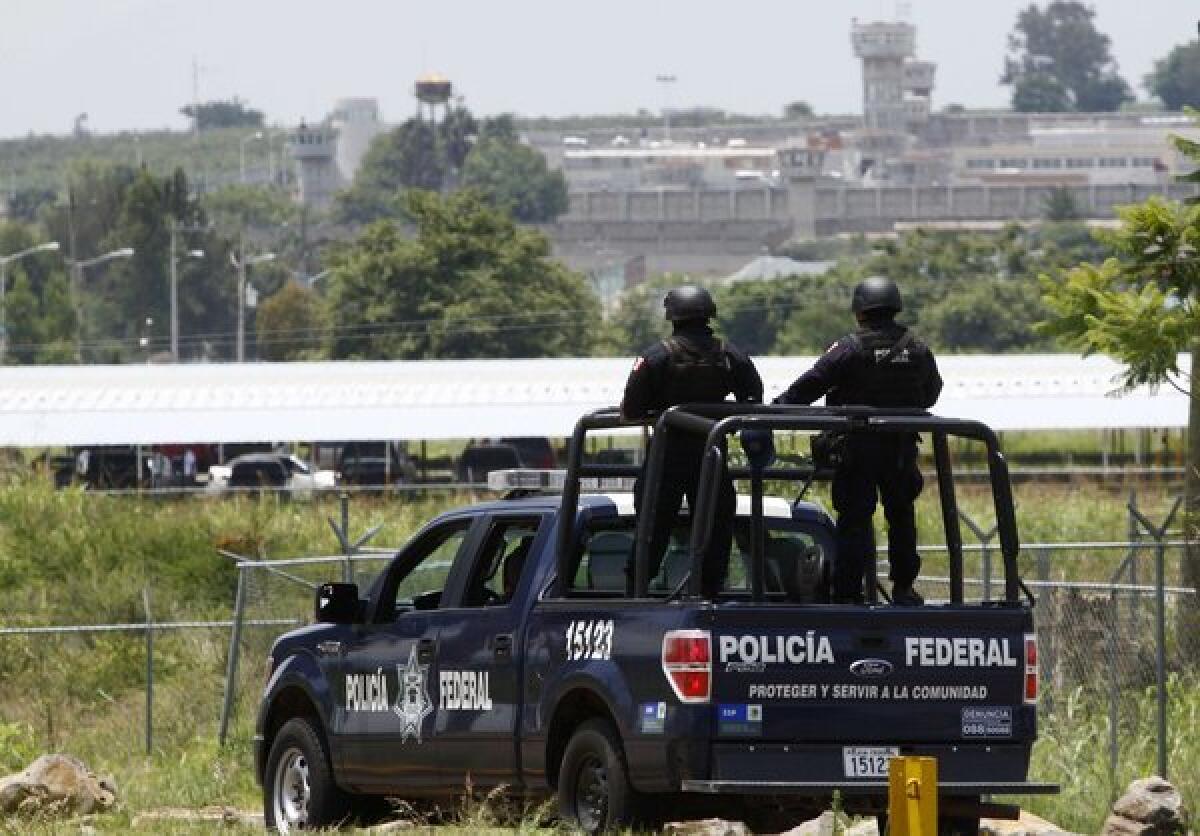U.S. requests extradition of Mexican behind DEA agent’s death

- Share via
MEXICO CITY — The United States government has formally requested the extradition of Rafael Caro Quintero, the Mexican drug lord who was convicted of slaying a U.S. anti-narcotics agent in 1985 but was freed last week by a Mexican court on a technicality, Mexican officials said Wednesday.
Caro Quintero, 60 — a notorious co-founder of one of Mexico’s first major, modern drug cartels — was released from a prison in Mexico’s Jalisco state early Friday morning after a surprise ruling by an appeals tribunal.
It is unclear where Caro Quintero went after walking out of the prison, or whether U.S. or Mexican forces have been keeping close tabs on him.
According to a statement Wednesday from the Mexican attorney general’s office, U.S. officials have presented Mexican prosecutors with a “provisional arrest order” for Caro Quintero, based on “various crimes” he is charged with in federal district court in California. The arrest order was approved by a Mexican federal judge; in theory, this should trigger a hunt for him by Mexican security forces.
Caro Quintero has a number of federal charges pending against him in California, court documents indicate, including conspiring to distribute cocaine and marijuana; violent crimes in aid of racketeering, and murder and kidnapping charges related to the 1985 abduction and slaying of Enrique “Kiki” Camarena, an agent with the U.S. Drug Enforcement Administration.
Caro Quintero had been sentenced to 40 years in prison for the slaying of Camarena, and he served 28 years before being freed by last week’s controversial court ruling, which many here suspect was the result of either incompetence or corruption.
The slaying of Camarena severely strained U.S.-Mexico relations in the mid-1980s. Mexican police were involved in the crime, and the U.S. suspected Mexican government officials of orchestrating a cover-up.
The freeing of Caro Quintero is threatening to strain tensions once again, but the government of President Enrique Peña Nieto appears to be taking pains to assuage its angry northern neighbor. On Tuesday, Mexican Foreign Affairs Minister Jose Antonio Meade said the government would attempt to reverse the ruling that liberated the drug lord, saying it was not “respectful” of the Mexican “legal framework.”
Mexican officials have said that a U.S. extradition order could not be based on charges relating to the Camarena slaying, but they left open the possibility that he could be extradited for other charges pending against him in the United States.
Officials with the U.S. Justice Department and the U.S. Embassy in Mexico declined to comment on the case.
ALSO:
Hopes fade for 18 sailors after blast on Indian sub
In Egypt, mosques turn into hospitals; death toll climbs to 281
9 of the most memorable images from Egypt’s explosive summer
richard.fausset@latimes.com
wilkinson@latimes.com
More to Read
Sign up for Essential California
The most important California stories and recommendations in your inbox every morning.
You may occasionally receive promotional content from the Los Angeles Times.










